14 start with O start with O

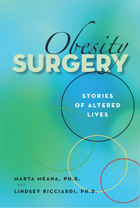

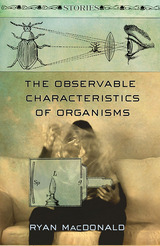
As MacDonald says, “I think what I’m after in the stories as well as in the video work is finding an experiential moment, nothing really stable, something pleasantly unstable, or uncomfortable . . . purposefully pleasant uncomfortable instability with moments of tenderness and definitely humor. Certainly nothing concrete, unless it needs that. A certain fear of and respect for banality. I’m after a good time, which can often turn into a really bad time, but either way, one we’ll remember forever.”
Despite the range of circumstances they reveal, these stories are unified by a brightness of vision, deft observation, and consistently sharp, funny, and unbridled language.
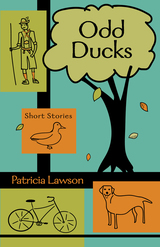
This debut collection of nine humorous stories, set in and around Kansas City from the 1950s to the 2000s, often depicts adults awkwardly mentoring talented young people, whether in a community garden, a library, or in one-on-one advice. Other characters feel like outsiders in their own neighborhoods or suddenly become outsiders when straying into unfamiliar places.
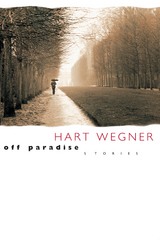
In stories that range from the Nevada desert to the lost world of prewar Silesia, Wegner explores, through the perspectives of Martin, his aging parents, and their small circle of fellow emigres, the intricate tapestry of the exile experience--childhood recollections of the vast and fertile plains of East Germany and the shelter of comfortable and loving homes, memories of the horrors of war, the guilt and terror and despair of displacement, the frustrations of finding one's way in a new and alien culture, the precious ties of family and longtime friendship. And most of all, loss--the loss of home; of an identity formed by an ancient language, the details of a shared culture, and a common sense of past and of future; of loved ones; and finally, and most tragically, of memory itself.
Wegner's characters are vividly and bravely human, bitter, tender, despairing, and full of hope. And ever-seeking a new home, a new place in which to belong after their long sojourn in the wilderness. The inner world of the exile has never been examined with such sympathy, such clarity, or such eloquence.
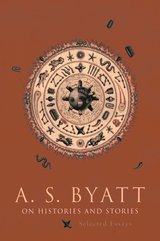
As writers of English from Australia to India to Sri Lanka command our attention, Salman Rushdie can state confidently that English fiction was moribund until the Empire wrote back, and few, even among the British, demur. A. S. Byatt does, and her case is persuasive. In a series of essays on the complicated relations between reading, writing, and remembering, the gifted novelist and critic sorts the modish from the merely interesting and the truly good to arrive at a new view of British writing in our time.
Whether writing about the renaissance of the historical novel, discussing her own translation of historical fact into fiction, or exploring the recent European revival of interest in myth, folklore, and fairytale, Byatt's abiding concern here is with the interplay of fiction and history. Her essays amount to an eloquent and often moving meditation on the commitment to historical narrative and storytelling that she shares with many of her British and European contemporaries. With copious illustration and abundant insights into writers from Elizabeth Bowen and Henry Green to Anthony Burgess, William Golding, Muriel Spark, Penelope Fitzgerald, Julian Barnes, Martin Amis, Hilary Mantel, and Pat Barker, On Histories and Stories is an oblique defense of the art Byatt practices and a map of the complex affiliations of British and European narrative since 1945.
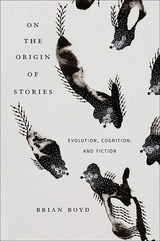
A century and a half after the publication of Origin of Species, evolutionary thinking has expanded beyond the field of biology to include virtually all human-related subjects—anthropology, archeology, psychology, economics, religion, morality, politics, culture, and art. Now a distinguished scholar offers the first comprehensive account of the evolutionary origins of art and storytelling. Brian Boyd explains why we tell stories, how our minds are shaped to understand them, and what difference an evolutionary understanding of human nature makes to stories we love.
Art is a specifically human adaptation, Boyd argues. It offers tangible advantages for human survival, and it derives from play, itself an adaptation widespread among more intelligent animals. More particularly, our fondness for storytelling has sharpened social cognition, encouraged cooperation, and fostered creativity.
After considering art as adaptation, Boyd examines Homer’s Odyssey and Dr. Seuss’s Horton Hears a Who! demonstrating how an evolutionary lens can offer new understanding and appreciation of specific works. What triggers our emotional engagement with these works? What patterns facilitate our responses? The need to hold an audience’s attention, Boyd underscores, is the fundamental problem facing all storytellers. Enduring artists arrive at solutions that appeal to cognitive universals: an insight out of step with contemporary criticism, which obscures both the individual and universal. Published for the bicentenary of Darwin’s birth and the 150th anniversary of the publication of Origin of Species, Boyd’s study embraces a Darwinian view of human nature and art, and offers a credo for a new humanism.
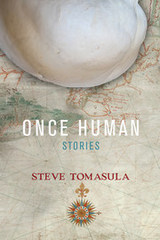
A manga artist who is afraid that she herself is slipping into a cartoon version of life, a lab technician who makes art with the cloning technology she uses at work, a sociologist hunting for the gene that makes some people want to take risks—these are some of the characters that populate the stories in Once Human. Exploring the spaces where life is shaped by science and the technologies we bring into being, Steve Tomasula’s characters often find that the harder they look at the world, the less they can say. The map that emerges from these stories charts the territory of human longing and the failure of poetry, science, and technology to explain the “why” of the world, if not its “how.”
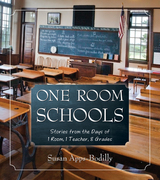
Have you ever wondered what it was like to attend a one-room school, to be in the same classroom as your older brother or younger sister, or to have your teacher live with your family for part of the school year?
In One Room Schools, Susan Apps-Bodilly chronicles life in Wisconsin’s early country schools, detailing the experiences of the students, the role of the teacher, and examples of the curriculum, including the importance of Wisconsin School of the Air radio programs. She describes the duties children had at school besides their schoolwork, from cleaning the erasers and sweeping cobwebs out of the outhouse to carrying in wood for the stove. She also tells what led to the closing of the one room schools, which were more than just centers of learning: they also served as the gathering place for the community.
Susan Apps-Bodilly drew from the research compiled by her father Jerry Apps for his book, One-Room Country Schools: History and Recollections. Apps-Bodilly has geared her book toward young readers who will learn what students and their teacher did on cold mornings before the wood stove warmed them up. They also will find out how to play recess games like Fox and Geese and Anti-I-Over and will learn the locations of 10 former one room schools that can be toured. Apps-Bodilly also encourages readers to ask themselves what lessons can be learned from these early schools that have application for today’s schools?
One Room Schools will transport young readers back in time and make their grandparents and others of that generation nostalgic—perhaps even prompting them to share memories of their school days.
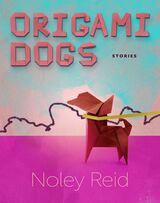
Noley Reid’s fourth book, Origami Dogs, is a testament to her mastery of the form. Here, dogs rove the grounds of their companions’ emotions. The creatures in this short story collection often act subtly, serving as witnesses without language, exacerbating tension and providing relief to the human characters. Sometimes they are central to the stories’ plots, such as in the lead story, “Origami Dogs,” which focuses on Iris Garr, a dog breeder’s teenage daughter, as she begins noticing odd birth defects in new litters and realizes she must confront her mother, whom she loves yet cannot help but resent. In some stories, teens struggle toward womanhood or wrestle with sexuality and queerness, confronting parents who are unable to provide the care or support they need. In other stories, Reid’s characters are adults striving to be better spouses, parents, or both, and are often grappling with life-changing events—like a new disability or the loss of a child. Despite the gravitas of these tragedies, with Reid’s touch, they feel alive, present, and painfully close. Reid brings us to her characters in the fierce damp aftermath of calamity and asks us to dwell with them until new possibilities arrive.
At these tipping points, the characters of Origami Dogs stand ready with their dogs (or memories of them), to take the next step. By turns tender, moving, and devastating, this story collection is a celebration of the bond of devotion possible between humans and dogs, and it presents an intimate rendering of the lives we share.
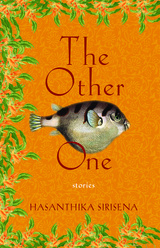
An excerpt from the book:
"All I want to know is when you are coming? When are you bringing my sons, my family?"
She watched as a gecko, tinier than normal, skittered across the far wall. It disappeared into a small crack. The room was very hot, and she hadn't turned on the ceiling fan so that the family could save a little money. She took a handkerchief from her nightstand and wiped the beads of sweat from her forehead and the back of her neck.
"I can't leave malli alone here. He's making progress but—"
"It will be for two years only. Then you can sponsor him."
"The lawyer says it's not so easy."
"He's a grown man. Let the government take him. The government did this to malli. Let the government pay the price for his care."
Even though there was no chance that her brother Ranjith could hear her, Anoja dropped her voice. "Malli is all alone here. He has nobody but aiya and me."
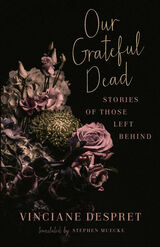
An award-winning exploration of the presence of the dead in the lives of the living
A common remedy after suffering the loss of a loved one is to progress through the “stages of grief,” with “acceptance” as the final stage in the process. But is it necessary to leave death behind, to stop dwelling on the dead, to get over the pain? Vinciane Despret thinks not. In her fascinating, elegantly translated book, this influential thinker argues that, in practice, people in all cultures continue to enjoy a lively, inventive, positive relationship with their dead.
Through her unique storytelling woven from ethnographic sources and her own family history, Despret assembles accounts of those who have found ways to live their daily lives with their dead. She rejects the idea that one must either subscribe to “complete mourning” (in a sense, to get rid of the dead) or else fall into fantasy and superstition. She explores instead how the dead still play an active, tangible role through those who are living, who might assume their place in a family or in society; continue their labor or art; or thrive from a shared inheritance or an organ donation. This is supported by dreams and voices, novels, television and popular culture, the work of clairvoyants, and the everyday stories and activities of the living. For decades now, in the West, the dead have been discreet and invisible. Today, especially as a result of the Covid-19 pandemic, Despret suggests that perhaps we will be willing to engage with the dead in ways that bring us happiness despite our loss.
Despret’s unique method of inquiry makes her book both entertaining and instructive. Our Grateful Dead offers a new, pragmatic approach to social and cultural research and may indeed provide compassionate therapy for those of us coping with death.
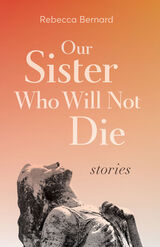
READERS
Browse our collection.
PUBLISHERS
See BiblioVault's publisher services.
STUDENT SERVICES
Files for college accessibility offices.
UChicago Accessibility Resources
home | accessibility | search | about | contact us
BiblioVault ® 2001 - 2024
The University of Chicago Press









